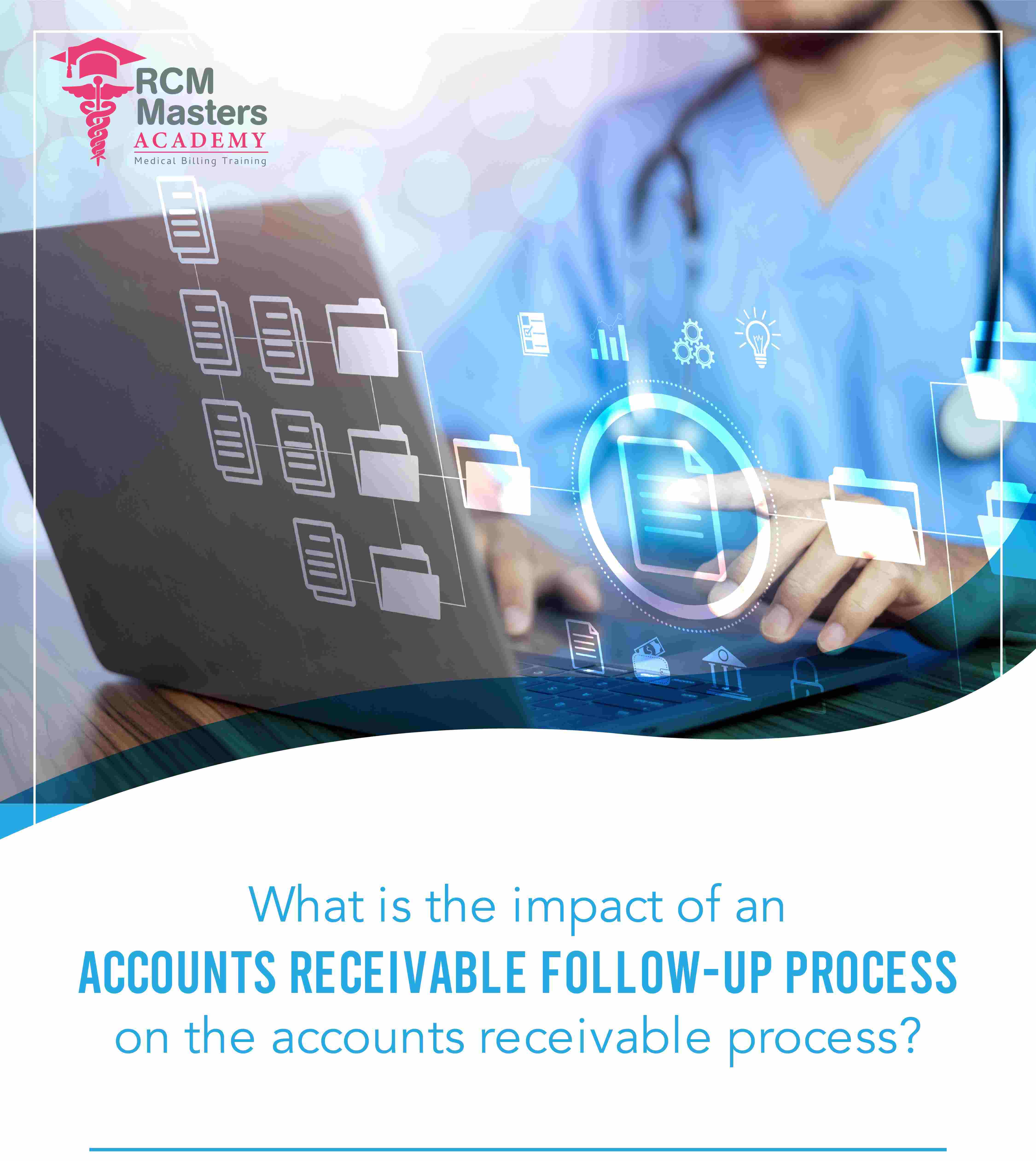 info@rcmmastersacademy.com
info@rcmmastersacademy.com

Insurance follow-up is an important process that helps ensure that healthcare providers receive payment for the services they provide. The process involves verifying insurance information, submitting claims, and following up with insurance companies to ensure that claims are paid in a timely manner. An effective insurance follow-up process can have a significant impact on the accounts receivable process by reducing the amount of time it takes to receive payment, improving cash flow, and reducing the number of unpaid claims.
One of the main benefits of an effective insurance follow-up process is that it can reduce the amount of time it takes to receive payment. Healthcare providers typically submit claims to insurance companies electronically, but it can take several weeks or even months to receive payment. By following up with insurance companies on a regular basis, providers can identify and resolve any issues that may be causing payment delays, such as missing or incorrect information. This can help speed up the payment process and ensure that providers receive payment in a timely manner.
Another benefit of an effective insurance follow-up process is that it can improve cash flow. Healthcare providers often rely on timely payments from insurance companies to pay their bills and cover their expenses. When claims are paid quickly, providers have the cash flow they need to pay their bills and invest in their businesses. By following up with insurance companies on a regular basis, providers can ensure that claims are paid promptly, which can help improve their cash flow and overall financial stability.
In addition to improving cash flow, an effective insurance follow-up process can also help reduce the number of unpaid claims. Unpaid claims can have a significant impact on the accounts receivable process, as they can lead to a backlog of unpaid invoices and create financial stress for healthcare providers. By following up with insurance companies on a regular basis, providers can identify and resolve any issues that may be causing claims to go unpaid, such as missing or incorrect information. This can help reduce the number of unpaid claims and ensure that providers receive payment for the services they provide.
Another way that an effective insurance follow-up process can impact the accounts receivable process is by reducing the amount of time and resources providers need to dedicate to collections. When claims are paid quickly, there is less need for providers to dedicate resources to collections efforts. This can free up time and resources that providers can use to focus on other aspects of their business, such as providing high-quality patient care.
Overall, an effective insurance follow-up process can have a significant impact on the accounts receivable process for healthcare providers. By reducing the amount of time it takes to receive payment, improving cash flow, reducing the number of unpaid claims, and reducing the need for collections efforts, an effective insurance follow-up process can help providers improve their financial stability and focus on providing high-quality patient care. If you are a healthcare provider, it is important to develop and implement an effective insurance follow-up process to ensure that you receive timely payment for the services you provide.
You can enroll for our Online Medical Billing Training here: